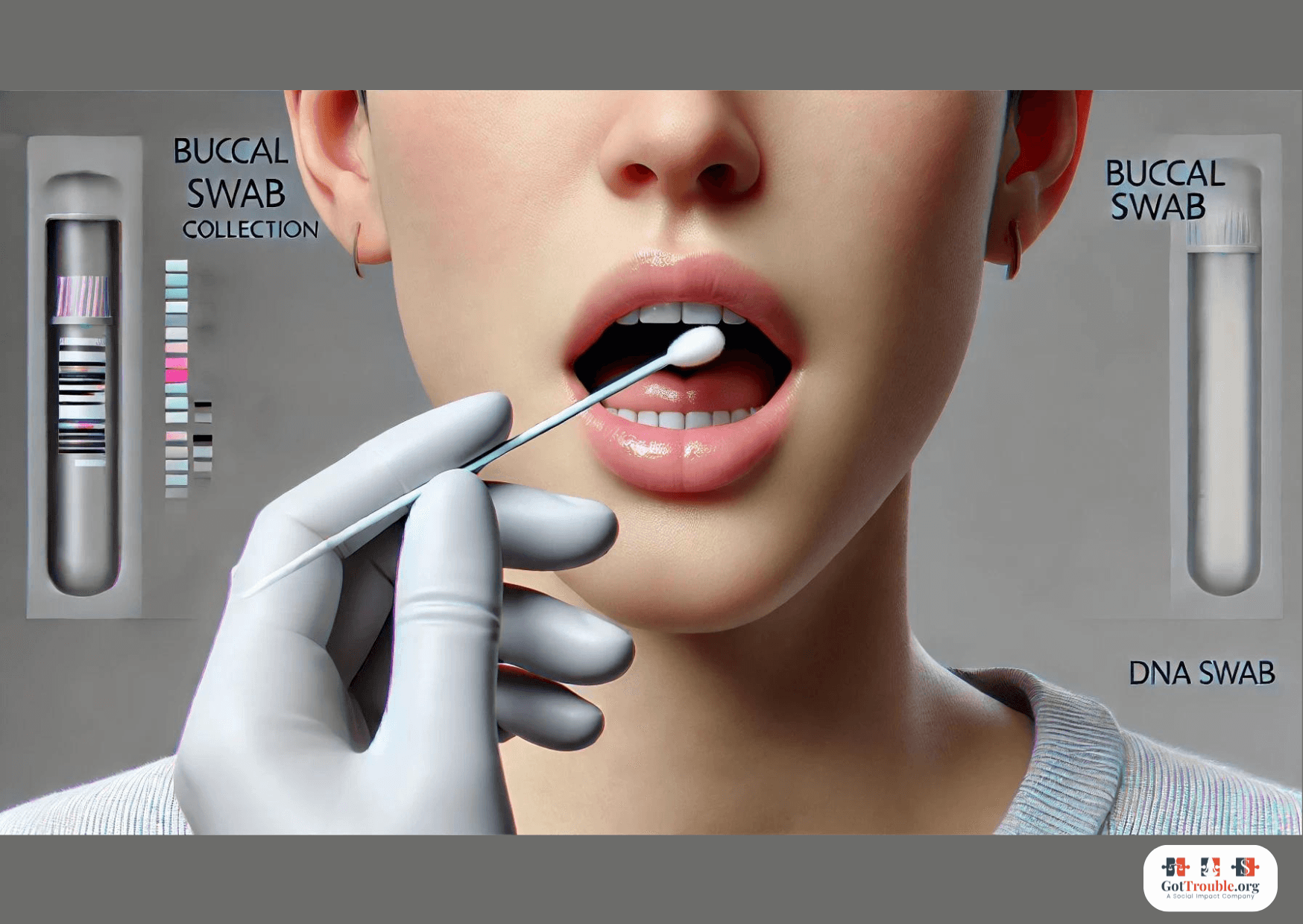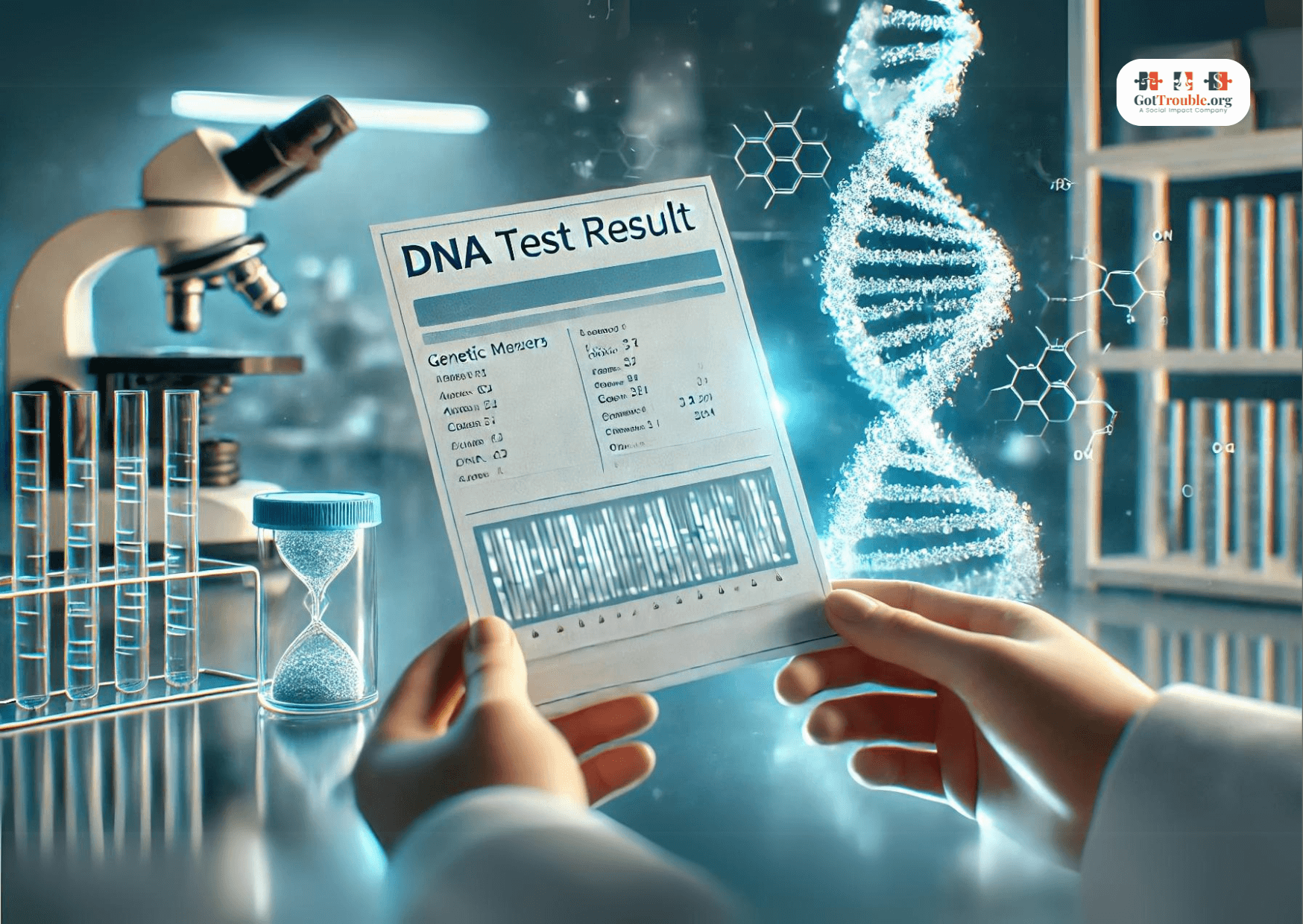What is DNA Paternity Tests
When partners disagree about paternity or when one or both want to make sure that the person is, in fact, the true biological father, the legal issue of paternity sometimes ends up in court.
A DNA paternity test is a scientific method for confirming whether a man is a child’s biological father by comparing their DNA sequences. These tests are highly accurate.
The test analyzes specific genetic markers and can be done using swabs, blood, or other tissues. They are used for legal, medical, and personal reasons to provide clear and definitive answers.
This article explains the process, uses, and benefits of DNA paternity testing, a crucial tool in establishing biological relationships.
If legal issues arise because the mother or the suspected father refuses to determine paternity or if one of them insists on establishing paternity, should a court intervene, the judge will likely order a paternity test.
When Paternity Is Contested
Court-ordered DNA paternity testing is typically mandated for establishing paternity in general disputes involving child custody, exclusive child custody rights, or child support.
Court-ordered DNA testing is usually the result of the following circumstances:
- The father seeks more visitation rights or custody
- The mother seeks a child support order from the alleged father, and sometimes, indirectly, this might impact how the court will treat issues regarding spousal support.
- The mother married someone, and the suspected father wants to confirm paternity biologically.
- One spouse seeks exclusive custody over a child.
How Accurate Is DNA Paternity Testing?
The initials for DNA stand for (deoxyribonucleic acid) and is the molecular code for human life. Every one of us has a unique DNA identity.
Statistic: A DNA paternity test can scientifically and conclusively determine the biological relationship between a child and a suspected father through genetic exclusion. As of 2024, DNA paternity tests can exclude 99.9 percent of non-fathers.

What is DNA?
According to the Cleveland Clinic, DNA is the genetic material inside our body’s cells. It acts like an instruction manual to help make you who you are. You inherit DNA from both your biological parents — half from each parent.
How Are DNA Samples Collected?
DNA samples are collected by swabbing the interior cheeks of the child, mother, and suspected biological father, ensuring accurate genetic testing.
Accurate DNA sample collection is crucial for reliable paternity testing, which can help you piece together important parts of your biological life. The most common method, the buccal swab, is non-invasive and easy to perform. It uses a cotton swab to collect cheek cells.
When detailed genetic material insights are needed, blood samples provide high-quality DNA, though they are more invasive. This procedure involves analyzing fetal DNA extracted from the mother’s bloodstream, offering an early method for establishing paternity before the child is born.
Who Pays for DNA Testing?
In most paternity disputes, the court usually orders a paternity test if the mother files legal papers for child support payments, with costs often assigned to the mother. The mother can make a request for child support even after the divorce is final.
Other courts take a more neutral position by requiring the parties to split the cost.
Home DNA paternity tests
At-home paternity tests are highly accurate and are often used as evidence in a legal paternity action. A paternity test is used in court to establish child support for matters such as social security or other child custody issues.
While blood samples are acceptable, most people choose to be tested by a buccal swab that is gently rubbed on the interior side of the cheek.
DNA paternity test kits
Today, DNA testing kits can be purchased over the counter in most pharmacies or online.
Online orders for DNA testing kits are directly shipped to the consumer.
The kit usually includes three swabs for each participant. Each participant will swab the inside of their cheek three times (three samples are collected per participant).
Then, each of the three swabs is inserted into one of two protected envelopes and mailed to the lab for testing.

How long does it take for the lab to complete testing?
Once received, most laboratories process the DNA samples within 48 hours, providing you with conclusive and timely DNA test results.
Statistic: Over 500,000 paternity tests are conducted annually in the U.S., according to the AABB (American Association of Blood Banks).
Legal Admissibility In Courts
Most laboratories provide a specialized legal DNA test for those who require their DNA test results to be used in court proceedings, which may incur additional fees. The chain of custody must be established before the test can be accepted as legal evidence of paternity.
Paternity Test Pricing: Court-Approved Testing More Expensive
Legally admissible testing per participant from major laboratories can be expensive. What is called non-legal testing (not provided for a court to establish paternity) can be found for about $100. According to the DDC, a court-approved legal paternity test can cost between three hundred and five hundred dollars.
Who is required for paternity testing?
Most courts will accept a paternity test that compares the child’s DNA with the DNA of the alleged father.
Some services will come to your home for an additional fee to perform the testing. This is sometimes advised if the court requires the party to prove the sample’s chain of custody at the court hearing.
Maternity Testing To Qualify For Paid Family Leave
A maternity test is now commonly used to establish that a woman is legally entitled to maternity leave from her employer.
The recently revised Family and Medical Leave Act mandated that up to three months of paid leave be provided for the birth of a child.
Employers are always free to provide additional paid leave time.
The Average “Home Kit” Cost
A home kit costs about $125.00; the average turnaround time for such testing is 3 to 7 days.
Other Benefits and Importance of Paternity Testing:
- The test confirms if a child is eligible for public and private benefits through the mother and father
- The test can confirm if the child is legally entitled to inheritance rights through both parents
- Provides the child with a fuller sense of identity
Other DNA Paternity Test Applications
Paternity DNA Testing For Immigration
Paternity DNA Testing For Child Adoptions

Five Misconceptions About DNA Paternity Testing
Misconception #1: DNA tests are always accurate.
Reality: DNA paternity tests are highly accurate. Statistically, they have shown to be 99.9% correct). However, these tests are still subject to human error, such as lap processing mistakes caused by rushed processing of the tests.
Misconception #2: Only fathers need to provide a DNA sample.
Reality: In most cases, to ensure accuracy, samples are taken from the mother, father, and child.
Misconception #3: At-home DNA tests are not legally admissible.
Reality: Many at-home DNA tests can be legally admissible, assuming that the chain of custody is legally established and properly documented for the court.
Misconception #4: DNA paternity tests can be invasive and painful.
Reality: Most tests use buccal swabs, which are both non-invasive and totally painless.
Misconception #5: DNA paternity testing is only for child support disputes.
Reality: DNA paternity tests are also used to establish intestate succession bloodlines, inheritance rights, and access to insurance benefits.
Five Fears Related to DNA Paternity Testing
Fear #1: If I am not the biological father, it will cause chaos in my family.
Reality: While results can be emotionally threatening, the truth will clarify the legal and personal responsibilities between the parties and provide some emotional closure.
Fear #2: DNA testing is too expensive.
Reality: While legal tests can be expensive. Plus, home kits are accurate and relatively inexpensive, costing only about $100–$150.
Fear #3: I will lose my privacy if I take a paternity test.
Reality: Laboratories must impose strict privacy guidelines in their procedures and communication policies.
Fear #4: I’m worried the testing process will take too long.
Reality: Most paternity test results are available within 48 hours to a week.
Fear #5: The court will force me to take a paternity test against my will.
Reality: In legal disputes, courts can order a paternity test, but your lawyer should be able to help you address your concerns before compliance is required. Make sure to consider all your legal options before submitting to the test.
Conclusion
In conclusion, DNA paternity testing is reliable for establishing biological relationships.
It is now commonly used to resolve child custody disputes, determine inheritance rights, and provide certainty in alleged child-parent relationships.
Despite fears and misconceptions, DNA testing is generally affordable, non-invasive, and highly accurate.
Understanding the benefits of DNA testing can help people make informed and intelligent choices. DNA paternity testing is essential in securing competing interests’ rights and obligations when determining paternity.
Sources and References
Department of State – DNA Testing
Cleveland Clinic: DNA Paternity Test
Is a paternity issue causing you stress? | The Law Offices of Lorrie J. Zahodnic, P.C..
García-Aceves, M. E., Cortés, G. M., & Villalobos, H. R. (2017). Results obtained in five years in a paternity testing laboratory in Mexico. Forensic Science International: Genetics Supplement Series.



























